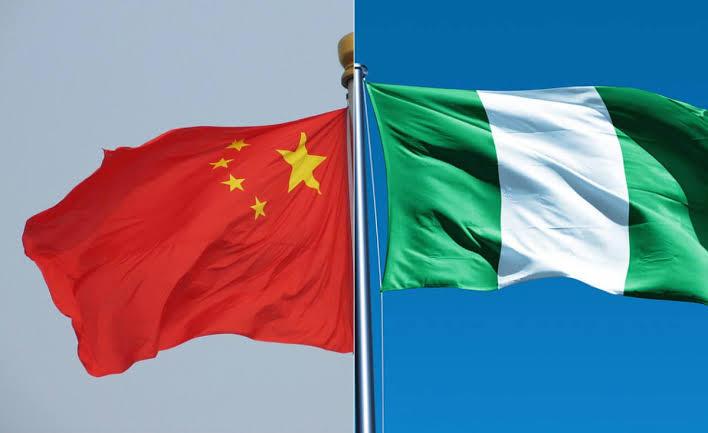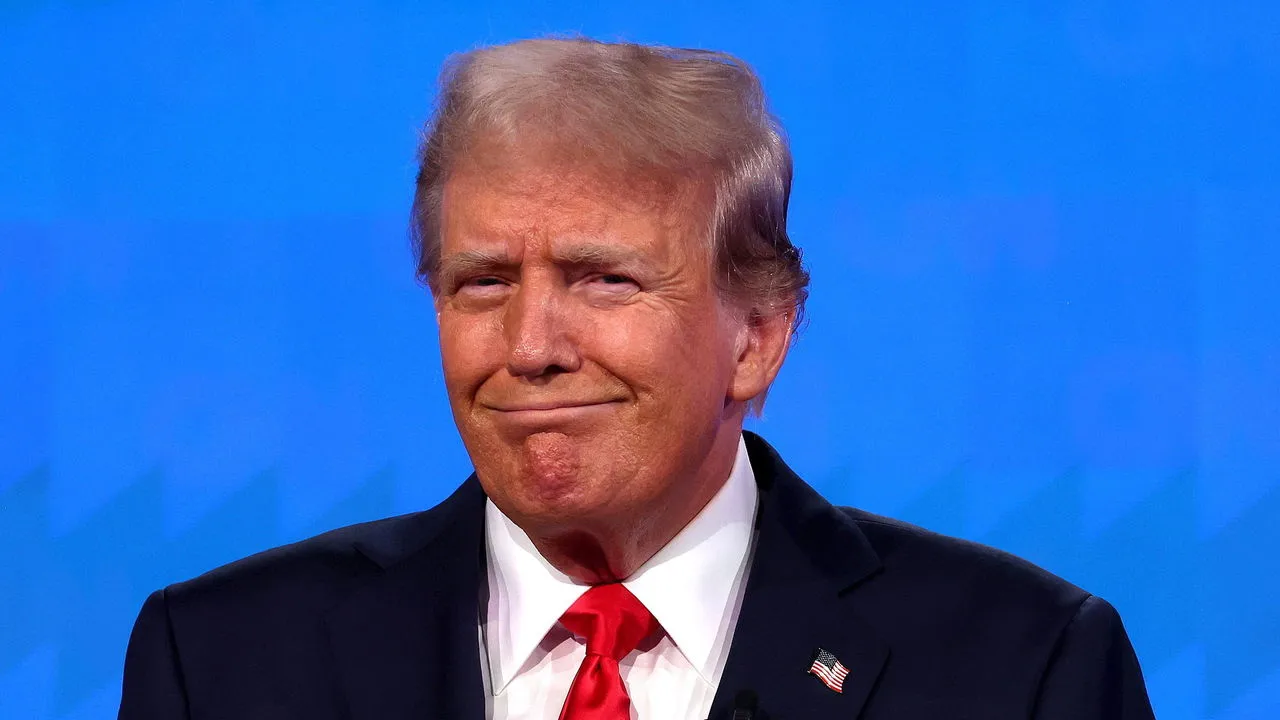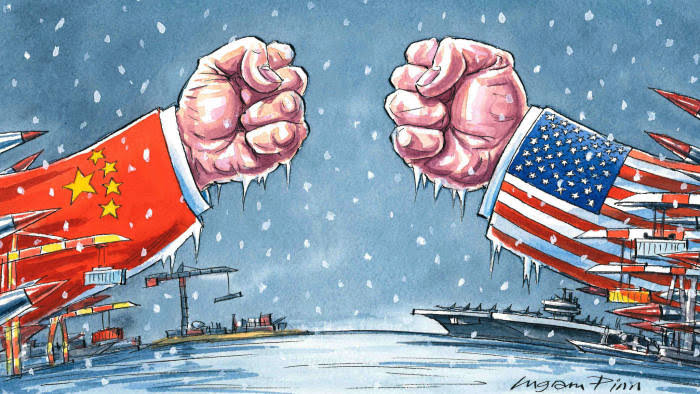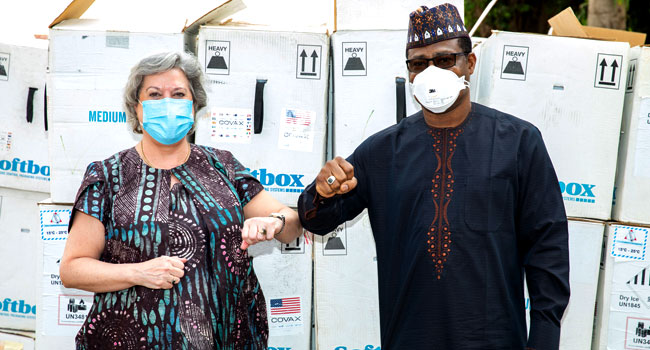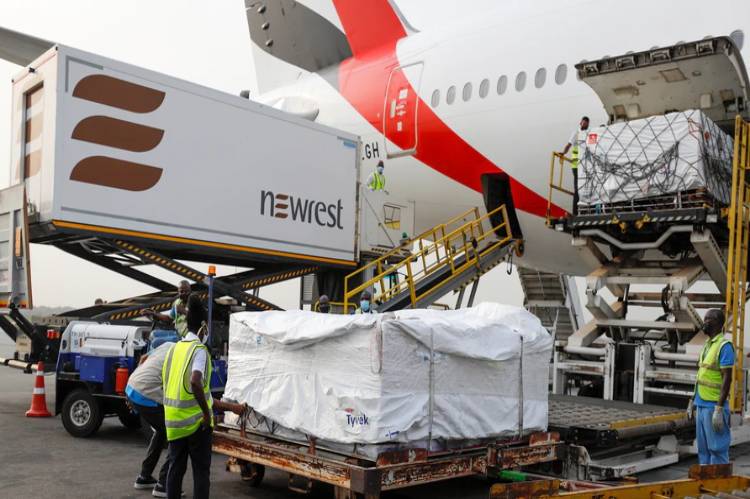By Charles Onunaiju, Abuja
Just recently, American’s political establishment took credulity too far, perhaps believing that it takes only to dare and fabricate and everything falls into place.
Nigeria is Africa’s major country, both the continent’s largest economy and biggest population has humongous deposit of critical minerals beneath its expansive swath of land.
Nigeria relations and cooperation with China generally considered pragmatic with outcomes of tangible results have also been the target of innuendoes and scurrilous misrepresentations by the United States of America.
While it has largely conducted its persistent slander of Nigeria-China cooperation, without necessarily naming names, its latest bold effrontery at targeting the Nigeria-Sino relation was a undisguised spittle concocted from Washington’s paranoid ideological bowels, only that this time its stinking dirt was covered with a so-called legislative bill, with a patronising title,” Nigeria Religious Freedom and Accountability Act of 2026″ with the explicit aim “to require a comprehensive report on United State efforts to address religious persecutions and mass atrocities in Nigeria”.
The nexus to Nigeria’s mass atrocities and Washington underhand complicity was in public display a year ago, when a U.S Republican Congressman, Mr. Perry Scott disclosed that the United States Aid Agency (USAID) funded foreign terrorist organization, including the dreaded terror group in Nigeria, Boko Haram and its off-shots, which has wreaked havoc in Nigeria besides its original base in the North East of the country.
The Massacre of nearly 200 people in the sleepy community of Worro in Kwara state, North Central Nigeria was perpetrated by Boko Haram offshoot operating in Kainji forest in the region.
Congressman Scott Perry in a session titled “The war on Waste: Stamping out the scourge of improper payments and fraud” raised questions about where the tax payer’s money go, “who get some of the money?Does the name ring bell to anybody in the room? Because your money, your money, $697 million annually plus the shipments of cash, funds in Madrases ISIS, AL-Queda, Boko Haram, ISIS Khorassan terrorist training camps.
That is what it is funding.” Connecting the revelations with the resilience and the staying power of the Boko Haram terror group despite the military pressure of Nigeria’s authorities, not many people have any illusions about who keep the terror campaign in Nigeria on the move and flourishing too.Despite that in 2021, Nigeria received all the twelve Tucano fighter jets from the U.S at a whooping cost of 500 million U.S dollars, described by the U.S Department of Defence, renamed Department of War as the largest single arms purchase in sub-Africa.
Despite the hype, the fighter jets did not manage to serious dent the Boko Haram campaign of terror, rather its theatre was rather widened.The latest legislative bill took umbrage at China, directing “the secretary of State to work with the government of Nigeria to counteract hostile foreign exploitation of Chinese illegal mining operations and destabilizing practices involving protection payments to militias”.
The brazen interference in the normal bilateral cooperation of two friendly countries, represent a new low of the unhinged Washington elites for whom trouble shopping is a next nature.
Five Republican lawmakers, Messers Chris Smith, Niley Moore, Brian Mast, Mario Driaz-Balart and Bill Huizenga have been in the fore-front of the fabrication about a genocide of any particular group in Nigeria despite the well-known fact that all religious groups in Nigeria have fallen victims to the heinous campaign of terror, and whose origins have much to do with Washington.
Before the U.S led NATO destabilization campaign in Libya, Boko Haram was an extremist sect, whose campaign was restricted to a small patch of a state in North East Nigeria. The destabilization of Libya by the U.S led NATO opened the gate to hell releasing weapons, munitions and trainees to incipient terror group across the Sahel and Nigeria. Boko Haram, whose terror tactics was mainly confined to improvised makeshift bombs took hold of the portions of Libyan armory flung open by the U.S led NATO and deliberately allowed to flow into the hands of irregular non state actors.
That Boko Haram and its affiliates metamorphosised from a local lightly armed band to a sophisticated terror group was largely thanks to Washington and NATO. While Washington has extensibly nurtured and fed terror campaigns in Nigeria and the Sahel, her audacity to point fingers in other directions is a well established pattern of U.S historical revisionism.China through her Embassy in Nigeria has pushed back at the U.S allegations, describing it as “completely baseless”, pointing that “the over-whelming majority of Chinese mining companies in Nigeria have set an exemplary record of compliance with Nigeria laws and regulations”. and adding that “Chinese mining enterprises in Nigeria are victims of terrorist activities”.Since 2025, Nigeria has been commissioning multiple Chinese backed Lithium plants marking a departure from raw material exports to domestic processing.
Major projects include 600 million USD plant near Kaduna-Niger border, a 200 million USD refinery near Abuja and two additional facilities in Nasarawa. Over 80% of the funding for this four major facilities are provided by Chinese investors including Jiuling Lithium Mining Company and Canmax Technologies.
In the race to the global electric vehicle battery supply chain, Nigeria’s increased capacity in the sector through massive Chinese investment, would significantly boost her position.The United States understand the prospect of Nigeria emerging capacity in the global energy transition and would stop at nothing to derail it.
The first step is to slander and scare away the Chinese investors, bringing the emerging industry to share the similar fate of the Ajaokuta steel Mill abandoned with implications that robbed Nigeria a place in the global steel industry value chain.
Turning Nigeria into a theatre for the ideological containment of China is a Washington long term project and the pretenses to address religious persecution and mass atrocities in Nigeria’ is the latest chapter in undermining Nigerian prospects and tarnishing one her important bilateral relations.
Nigeria authorities must reflect on a spectacular moment in U.S power diplomacy as noted by one of her leading lights on U.S international relations. Henry Kissinger has warned that “While to be America’s enemy is dangerous, to be America’s friend is fatal”.
That the Atlantic alliance is currently at its fractured worst point that any pontifications of altruism and concerns for others by Washington must be taken with considerable and measured sceptism.While a range of intervening variables would be necessary in the Nigeria’s fight against terrorism, banditry and other criminalities; inclusive and sustainable development is not only the solution in the long term but a guarantee against future resurgence.
In this regard, Nigeria-China partnership have delivered tangible contributions and it is no wonder that “America first” ideologues would go for the jugular of that meaningful partnership.
Mr., Onunaiju is Abuja based commentator on Public Affairs
